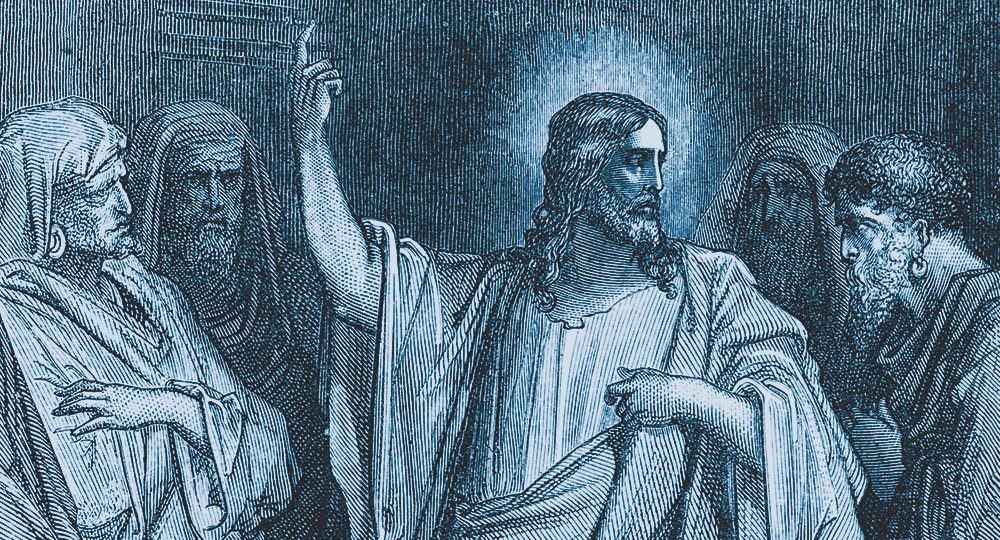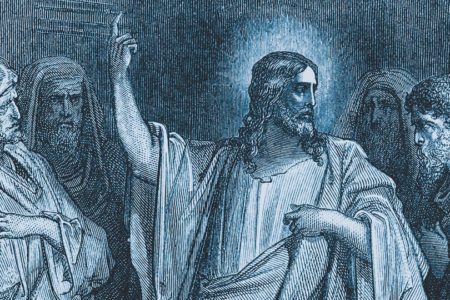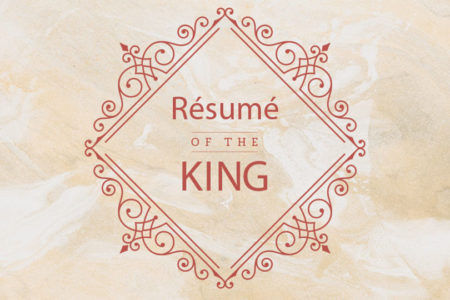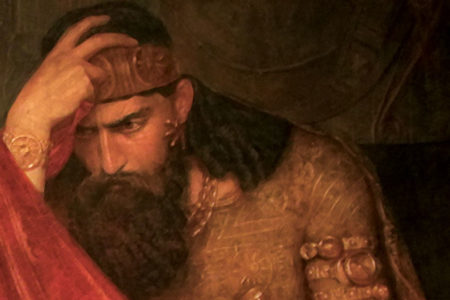The Greatest Prophet
Why Jesus was the greatest biblical prophet and the one Moses said to expect.
Listen to Chris Katulka’s interview with Richard Emmons about this article (begins @ 9:48).
Prophet, Priest, and King. That is how Jesus’ ministry roles are often portrayed. The Gospels emphasize His role as King of the Jews, though He has yet to occupy that position. The book of Hebrews emphasizes His role as High Priest, both in His sacrificial death and current ministry. Yet, while on Earth, Jesus was primarily a Prophet. So what does that title imply?
Every day people wonder, What will tomorrow bring? Who will be elected president? What will happen in the Middle East? Predictions are surely part of biblical prophecy. However, the whole picture is much more comprehensive.
Defining Prophet
The clearest picture of God’s definition of prophet is found in Exodus: “So the LORD said to Moses: ‘See, I have made you as God to Pharaoh, and Aaron your brother shall be your prophet. You shall speak all that I command you. And Aaron your brother shall tell Pharaoh to send the children of Israel out of his land’” (7:1–2).
“A prophet,” wrote scholar Walter Kaiser, “…is one who receives a word from God, just as Moses acted in the place of God in passing on the divine revelations he received from the Lord to his brother Aaron, now functioning as a prophet. Moreover, a prophet is authorized to communicate this divine message to another.”1
God spoke to His prophets through visions and dreams. However, to Moses, He spoke face-to-face; “and he sees the form of the LORD” (Num. 12:8). “Clearly, then,” Kaiser concluded, “a prophet is an authorized spokesperson for God with a message that originated with God and was communicated through a number of means. When God spoke to these spokespersons, they had no choice but to deliver that word to those to whom God directed it.”2
Moses, The Prophet
Moses, of course, is generally regarded as the greatest prophet in the Hebrew Scriptures. God called him “faithful in all My house” (v. 7). In using him to redeem the Israelites from Egypt and to establish them as a nation under God’s covenant, God lifted Moses up in the eyes of countless generations. Yet, at the end of his ministry, Moses indicated God would raise up another prophet like him one day:
The LORD your God will raise up for you a Prophet like me from your midst, from your brethren. Him you shall hear. And the LORD said to me:…‘[I] will put My words in His mouth, and He shall speak to them all that I command Him. And it shall be that whoever will not hear My words, which He speaks in My name, I will require it of him’” (Dt. 18:15, 17–19).
Though great prophets arose from Samuel through Zechariah and Malachi, none achieved the stature Moses had promised. Centuries passed, and the prophecy remained unfulfilled. Approximately 1,400 years had gone by, and Israel was still awaiting the prophet like Moses when the Levite John the Baptist appeared on the scene in Roman-occupied Judea:
Now this is the testimony of John, when the Jews sent priests and Levites from Jerusalem to ask him [John], “Who are you?” He confessed, and did not deny, but confessed, “I am not the Christ [Messiah].” And they asked him, “What then? Are you Elijah?” He said, “I am not.” “Are you the Prophet [emphasis added]?” And he answered, “No.” Then they said to him, “Who are you, that we may give an answer to those who sent us? What do you say about yourself?” He said: “I am ‘the voice of one crying in the wilderness: “Make straight the way of the LORD,”’ as the prophet Isaiah said.” Now those who were sent were from the Pharisees. And they asked him, saying, “Why then do you baptize if you are not the Christ, nor Elijah, nor the Prophet [emphasis added]?” John answered them, saying, “I baptize with water, but there stands One among you whom you do not know. It is He who, coming after me, is preferred before me, whose sandal strap I am not worthy to loose” (Jn. 1:19–27).
After Jesus performed a miracle by multiplying loaves of bread, some Jewish people suspected He might be the one for whom they were waiting: “This is truly the Prophet who is to come into the world” (6:14).
After He taught on the last day of the Feast of Booths (Sukkot), some responded, “‘Truly this is the Prophet.’ Others said, ‘This is the Christ [Messiah].’ But some said, ‘Will the Christ come out of Galilee?’” (7:40–41).
The Greatest Prophet
Though most people did not believe Him, Jesus as much as said who He was in a synagogue in Nazareth when He read aloud verses 1–2 of Isaiah 61:
The Spirit of the LORD is upon Me, because He has anointed Me to preach the gospel to the poor; He has sent Me to heal the brokenhearted, to proclaim liberty to the captives and recovery of sight to the blind, to set at liberty those who are oppressed; to proclaim the acceptable year of the LORD (Lk. 4:18–19).
JESUS IN THE HEBREW SCRIPTURES
See how the Old Testament is filled with references to the greatest Prophet in Jesus in the Hebrew Scriptures by Meno Kalisher.
Then He closed the book, sat down, and said, “Today this Scripture is ful filled in your hearing” (v. 21). But He knew they would not believe Him: “Then He said, ‘Assuredly, I say to you, no prophet is accepted in his own country’” (v. 24). Jesus clearly explained that He spoke nothing on His own initiative:
He who believes in Me, believes not in Me but in Him who sent Me. For I have not spoken on My own authority; but the Father who sent Me gave Me a command, what I should say and what I should speak. And I know that His command is everlasting life. Therefore, whatever I speak, just as the Father has told Me, so I speak (Jn. 12:44, 49–50; cf. 7:16–18; 17:7–8).
Jesus told His disciples, “The words that I speak to you I do not speak on My own authority; but the Father who dwells in Me does the works” (14:10).
Therefore, since every word Jesus spoke was given to Him by the Father, His entire spoken ministry was prophecy. The majority of it, however, was not predictive in nature. Like Moses’ ministry, Jesus’ prophetic work was primarily revelatory. He came to (1) reveal God in ways not seen in the Hebrew Scriptures (even the term Father was significantly different), (2) highlight the type of righteousness necessary for God’s Kingdom, (3) reveal the new administration that would be established upon His death, and (4) manifest God’s loving righteousness through His redemption of mankind.
Later He would reveal to the apostle John the future judgment of the world and the establishment of His Kingdom (Rev. 1—22).
During His time on Earth, Jesus delivered four major discourses (and several shorter ones) in which He revealed the mind and will of His Father. (See page 17.) Jesus was the greatest biblical prophet and the one Moses said to expect. The writer to the Hebrews put it this way:
God, who at various times and in various ways spoke in time past to the fathers by the prophets, has in these last days spoken to us by His Son, whom He has appointed heir of all things, through whom also He made the worlds; who being the brightness of His glory and the express image of His person, and upholding all things by the word of His power, when He had by Himself purged our sins, sat down at the right hand of the Majesty on high. And Moses indeed was faithful in all His house as a servant, for a testimony of those things which would be spoken afterward, but Christ as a Son over his own house (Heb. 1:1–3, 3:5–6).
Moses was a great prophet, but Jesus was far greater.
ENDNOTES
- Walter C. Kaiser Jr., “Prophet, Prophetess, Prophecy,” Evangelical Dictionary of Biblical Theology, ed. Walter A. Elwell (Baker Book House, Grand Rapids, MI: 1996), 641–642.
- Ibid.









I just saw your message on You-tube on Revelation 20. It is so helpful and I am so blessed to have been a co-worker in the kingdom with you a long time ago. May God continue to bless you and keep you strong in the teaching of His word.